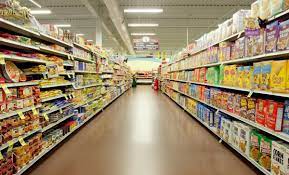
Due to long-term high inflation and increased savings, Australian supermarkets will make more money in the first half of fiscal 2023. However, analysts have warned of a difficult second half as households struggle with rising costs of living.
Analyst predictions predict that Woolworths Group and Coles Group, two major supermarket chains, will see an increase in their half-year profits due to higher shelf prices and lower COVID-19-related costs.
Due to pressures from global inflation, Australian households must pay more for groceries and energy, and their budgets are further strained by higher mortgage payments as a result of the central bank's rate hikes intended to fight inflation.
According to an estimate, the increases have increased the average Australian mortgage's monthly repayments by A$900.
"There's a bit of a disconnect between confidence and reality at the moment - the confidence levels are low, but people are still spending. So I think outlook statements will be cautious" said Matthew Haupt, a lead portfolio manager whose WAM Leaders fund has holdings in Woolworths and Coles.
Haupt claimed that despite higher prices, Australians have continued to spend due to high household savings after the government distributed stimulus checks during the pandemic. However, once interest rates peak and mortgage payments reach their maximum, retailer top-lines may decline.
Coles reported a 7.1% increase in food prices during the September quarter, compared to Woolworths' 7.3% increase. Australia reported the highest headline inflation rate in 33 years in the third quarter at 7.8%.
Analysts at Macquarie believe that since in-store margins are typically higher than online margins, a return to in-store shopping will also increase margins. Citi analysts anticipate additional advantages from selling prices increasing more quickly than cost bases.
Electronics retailers were perceived to be suffering disproportionately from the decline in consumer spending over the second half, as later confirmed by JB Hi-Fi, which reported slower sales growth and warned of a "uncertain period" ahead.
"We are concerned that the rising cost of living, fixed rate mortgage roll-offs and normalising service consumption erode consumer discretionary spending in the second half of calendar 2023," analysts at Macquarie said.
Bunnings, the top revenue generator for retail conglomerate Wesfarmers, only slightly increased profits, and Wesfarmers relied on a recovery at Kmart, which had been shut down in the previous quarter, to increase profits.
On February 21 and 22, respectively, Coles and Woolworths are anticipated to release their half-yearly earnings reports.
(Source:www.businessinsider.com)
Analyst predictions predict that Woolworths Group and Coles Group, two major supermarket chains, will see an increase in their half-year profits due to higher shelf prices and lower COVID-19-related costs.
Due to pressures from global inflation, Australian households must pay more for groceries and energy, and their budgets are further strained by higher mortgage payments as a result of the central bank's rate hikes intended to fight inflation.
According to an estimate, the increases have increased the average Australian mortgage's monthly repayments by A$900.
"There's a bit of a disconnect between confidence and reality at the moment - the confidence levels are low, but people are still spending. So I think outlook statements will be cautious" said Matthew Haupt, a lead portfolio manager whose WAM Leaders fund has holdings in Woolworths and Coles.
Haupt claimed that despite higher prices, Australians have continued to spend due to high household savings after the government distributed stimulus checks during the pandemic. However, once interest rates peak and mortgage payments reach their maximum, retailer top-lines may decline.
Coles reported a 7.1% increase in food prices during the September quarter, compared to Woolworths' 7.3% increase. Australia reported the highest headline inflation rate in 33 years in the third quarter at 7.8%.
Analysts at Macquarie believe that since in-store margins are typically higher than online margins, a return to in-store shopping will also increase margins. Citi analysts anticipate additional advantages from selling prices increasing more quickly than cost bases.
Electronics retailers were perceived to be suffering disproportionately from the decline in consumer spending over the second half, as later confirmed by JB Hi-Fi, which reported slower sales growth and warned of a "uncertain period" ahead.
"We are concerned that the rising cost of living, fixed rate mortgage roll-offs and normalising service consumption erode consumer discretionary spending in the second half of calendar 2023," analysts at Macquarie said.
Bunnings, the top revenue generator for retail conglomerate Wesfarmers, only slightly increased profits, and Wesfarmers relied on a recovery at Kmart, which had been shut down in the previous quarter, to increase profits.
On February 21 and 22, respectively, Coles and Woolworths are anticipated to release their half-yearly earnings reports.
(Source:www.businessinsider.com)





